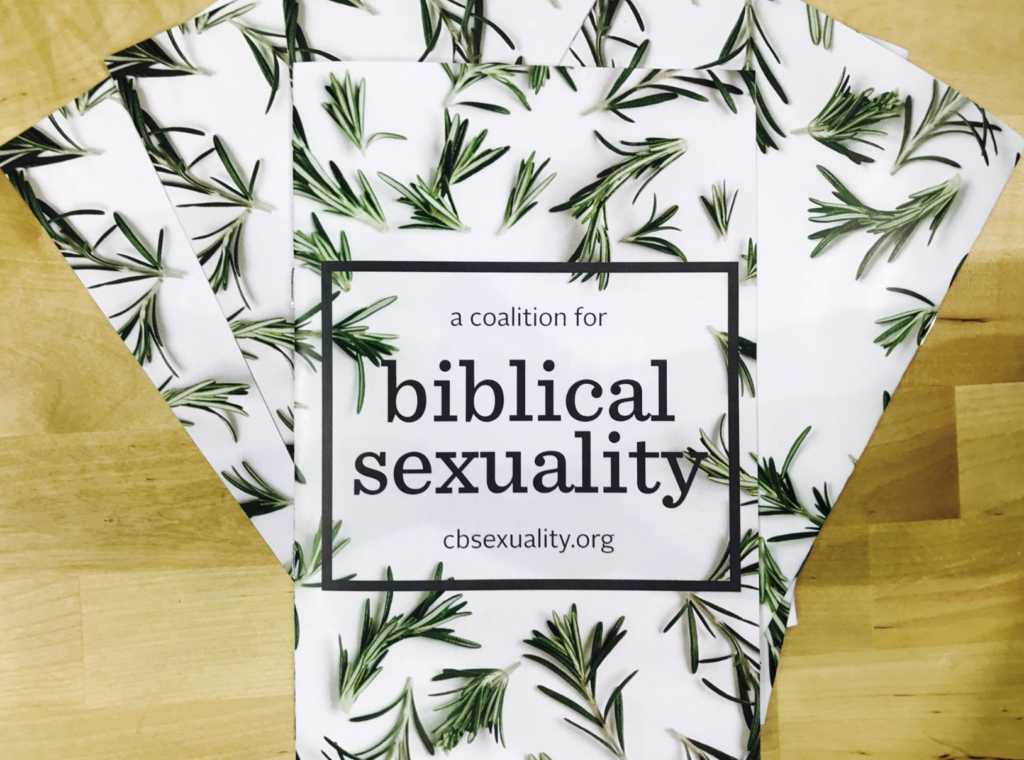Prominent evangelicals doubled down this week on the biblical theology surrounding sexuality, releasing the “Nashville Statement,” a 14-point proclamation that tackles same-sex attraction, transgender identity and premarital sex, among other issues.
Here is the Complete Story Behind the Joel Osteen Hurricane Harvey Controversy
The document, which defends traditional biblical stances on these issues, affirmed and laid out what evangelicals have long believed, but in a culture that has become increasingly accepting of a variety of issues pertaining to sexuality and gender identity, critics wasted no time in unleashing on the statement as well as its scores of signatories.
“Evangelical Christians at the dawn of the twenty-first century find themselves living in a period of historic transition,” the document, which was published by the The Council on Biblical Manhood & Womanhood, opens.
The text continues, “As Western culture has become increasingly post-Christian, it has embarked upon a massive revision of what it means to be a human being. By and large the spirit of our age no longer discerns or delights in the beauty of God’s design for human life.”
The Nashville Statement goes on to offer up 14 articles that focus on various issues, ranging from abstinence before marriage to proclamations defending marriage as an institution between one man and one woman.
The document calls for “chastity outside of marriage and fidelity within marriage,” and proclaims that “self-conception as male or female should be defined by God’s holy purposes in creation and redemption as revealed in Scripture.”
Some of the portions of the text that have likely sparked the biggest reaction center specifically on homosexuality and transgender identity. The statement denies that “adopting a homosexual or transgender self-conception is consistent with God’s holy purposes in creation and redemption” and also disputes claims that “sexual attraction for the same sex is part of the natural goodness of God’s original creation, or that it puts a person outside the hope of the gospel.”
Outrage over these proclamations, among others, has been swift. Here’s just a sampling:
Where was your statement on refugees?
How about racism?
Trump?
PS: Your timing is amazing. Houston is underwater.
— Jamie Tworkowski (@jamietworkowski) August 29, 2017
The God I know does not support the #NashvilleStatement.
— deray (@deray) August 30, 2017
Faith should be welcoming and accepting, not used as a tool to discriminate against LGBTQ people #NashvilleStatement https://t.co/J7s4yCNa5p
— Human Rights Campaign (@HRC) August 30, 2017
As a Nashville resident, I am ashamed of all the country music stars, universities, and celebs who are staying silent. #NashvilleStatement
— Eugene Gu, MD (@eugenegu) August 30, 2017
I have my own statement on the #NashvilleStatement. It could be lots of words but honestly I could probably narrow it down to just a finger.
— John Pavlovitz (@johnpavlovitz) August 30, 2017
https://twitter.com/seankent/status/902661905046802433
Anyway, the #NashvilleStatement is vile, but it's gonna cost those bigoted assholes tons of compassionate young people 😘 https://t.co/hvsSEKtgeX
— Lauren Duca (@laurenduca) August 29, 2017
Just catching up on the #NashvilleStatement and wondering if someone might please tell me what year this is. Or what century. Thanks.
— Nope. (@JoyAnnReid) August 30, 2017
Read the rest of the responses here. While furor has broken out over the tenets held within the document, Article 14 makes it clear that signatories believe no one is beyond God’s reach.
“WE AFFIRM that Christ Jesus has come into the world to save sinners and that through Christ’s death and resurrection forgiveness of sins and eternal life are available to every person who repents of sin and trusts in Christ alone as Savior, Lord, and supreme treasure,” the text reads. “WE DENY that the Lord’s arm is too short to save or that any sinner is beyond his reach.”
Still, that’s unlikely to temper the storm, with #NashvilleStatement trending on Twitter on Tuesday night and Wednesday morning. People both for and against the statement sounded off.
What’s perhaps most notable about the document are the many well-known signatories, including: John Piper, Russell Moore, John MacArthur, R. Albert Mohler, Jr., Sam Allberry, Francis Chan, Matt Chandler, James Merritt and Erick Erickson, among others. Erickson, editor-in-chief of The Resurgent, told Faithwire in an email that he believes the Nashville Statement merely affirms thousands of years of moral truth.
“I don’t know anyone in evangelical circles who are rejecting it. Certainly a number of liberal Christians are rejecting it. The greatest outcry seems to be from those who are not Christians at all,” he said. “And of those who claim to be in the church but call this divisive, we’re just reasserting multi-thousand year old truths.”
Erickson added, “It seems the division is coming from those moving away from those truths, not from those holding fast to them.”
He also pushed back against critiques that the timing of the release of the statement was heartless, considering what’s been going on with the Texas hurricane, noting that the date had long been on the calendar and that critics would have taken issue regardless of when it was released.
In the end, Erickson explained why he thought it was important to sign on to the Nashville Statement, citing the “secular tide” that has invaded some churches and the desperate need for biblical truth.
“As more and more Christians and, in particular, pastors decide it is not worth the hassle to affirm Biblical truths, it makes it even easier to abandon them to lies,” he said. “Providing clarity on the issue is important. It is also important because we are called to love others. Letting others escape into eternal damnation because no one ever called them to repent and be saved is not loving our neighbors; that’s just loving the world.”
Read the Nashville Statement in its entirety here.



